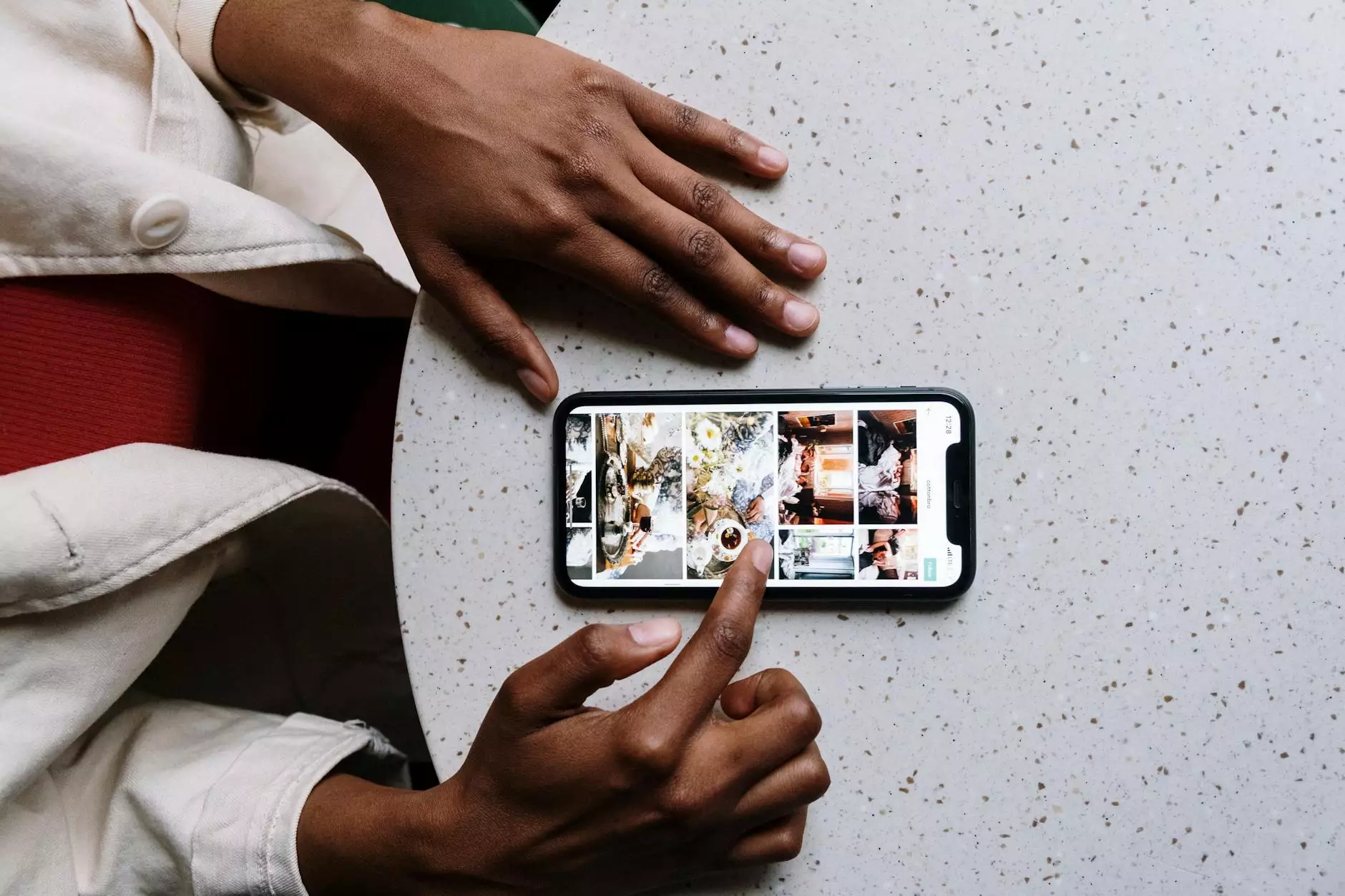Cell Phones - Comprehensive Guide to Recycling Cell Phones

Welcome to Festivals Bazar's comprehensive guide to recycling cell phones. As the world becomes increasingly dependent on technology, the disposal of electronic waste, or e-waste, has become a critical concern. This guide aims to educate you on the proper methods of recycling cell phones, reducing e-waste, and making a positive impact on the environment. Whether you are a tech-savvy individual, an environmentally conscious consumer, or simply someone looking to dispose of an old cell phone responsibly, this guide is for you.
Why Recycle Cell Phones?
Cell phones, like many other electronic devices, contain valuable resources such as precious metals, plastics, and other raw materials. When not disposed of properly, these resources go to waste and end up in landfills or incinerators, contributing to pollution and environmental degradation.
Additionally, cell phones also contain hazardous materials such as lead, mercury, and cadmium. When improperly disposed of, these substances can leach into the soil and water, posing serious risks to human health and the ecosystem.
By recycling cell phones, we can help conserve natural resources, reduce the demand for raw materials, prevent pollution, and minimize the negative environmental impacts associated with e-waste.
The Recycling Process
Recycling cell phones involves several steps to ensure proper disposal and resource recovery. Here is an overview of the recycling process:
1. Collection
The first step in cell phone recycling is the collection of old or unused devices. Many organizations, including cell phone manufacturers and retailers, offer recycling programs where you can drop off your old cell phones for proper disposal. Some even provide incentives, such as store credits or discounts, to encourage participation.
It is important to note that before recycling, you should remove any personal data from the device, including contacts, messages, and personal files. This can usually be done through a factory reset or data wipe function in the phone's settings.
2. Sorting and Dismantling
Once collected, the cell phones are sorted based on their condition and type. Often, the devices are dismantled by trained technicians who extract valuable components, such as batteries, circuit boards, screens, and casings. These components are then separated for further processing.
3. Resource Recovery
After sorting and dismantling, the valuable components of the cell phones are sent for resource recovery. Here, various techniques are used to extract and refine the precious metals (such as gold, silver, and palladium) found in the circuit boards and other electronic components. Plastics and other materials, like glass, are also processed separately to be repurposed or recycled.
4. Responsible Disposal
Any remaining materials that cannot be recycled or reused are disposed of responsibly, adhering to strict environmental regulations. This ensures that hazardous substances are properly treated and do not pose a threat to the environment or human health.
Environmental Benefits of Recycling Cell Phones
By actively participating in cell phone recycling efforts, you are contributing to numerous environmental benefits:
1. Conservation of Natural Resources
Recycling cell phones helps conserve valuable natural resources that are used in their production. By extracting and reusing precious metals and other materials, the demand for mining and extraction of these resources is reduced, preserving natural habitats and ecosystems.
2. Reduction of Emissions
The recycling process minimizes the need for energy-intensive mining, manufacturing, and processing of raw materials. By reducing these activities, we can significantly decrease greenhouse gas emissions and combat climate change.
3. Waste Diversion from Landfills
Every year, millions of cell phones end up in landfills, taking up space and releasing harmful substances into the environment. Recycling cell phones diverts them from landfills, reducing the burden on waste disposal facilities and preventing the release of hazardous materials.
4. Prevention of Water Pollution
Improperly disposed of cell phones can leach toxic substances into water bodies through landfill runoff. By recycling cell phones, we can prevent water pollution and protect aquatic ecosystems and drinking water sources.
Tips for Responsible Cell Phone Disposal
Here are some tips to ensure responsible disposal of your old cell phones:
- Use Recycling Programs: Take advantage of recycling programs offered by cell phone manufacturers, retailers, and other organizations. They have the necessary infrastructure to handle the recycling process properly.
- Donate or Sell: If your cell phone is still in working condition, consider donating or selling it. Many organizations and individuals would appreciate a usable device, reducing the need for new phone production.
- Erase Data: Before recycling, always erase personal data from your cell phone to protect your privacy. Perform a thorough factory reset or use data wipe applications to ensure all data is removed.
- Find E-Cycling Centers: Locate e-cycling centers or drop-off points near you where you can safely dispose of your old cell phones. These facilities are equipped to handle e-waste responsibly.
- Encourage Others: Spread awareness about the importance of cell phone recycling. Encourage your friends, family, and colleagues to recycle their devices and join the efforts to reduce e-waste.
Conclusion
Recycling cell phones is not only a responsible and environmentally friendly practice but also contributes to the conservation of resources and reduction of pollution. By following the guidelines outlined in this comprehensive guide, you can play an active role in reducing e-waste and making a positive impact on the environment. Together, let's embrace the importance of cell phone recycling and help create a more sustainable future.










